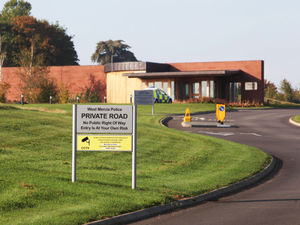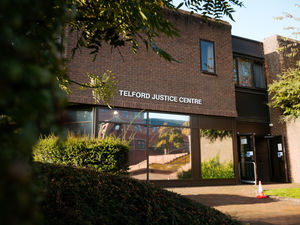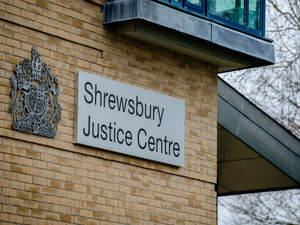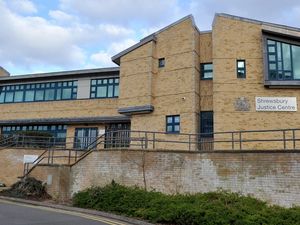Pc Benjamin Monk jailed for eight years for killing Dalian Atkinson
A police officer who unlawfully killed Dalian Atkinson by tasering him to the ground and kicking him in the head has been jailed for eight years.
Pc Benjamin Monk was cleared of murder but convicted of manslaughter after jurors heard that he left two bootlace imprints on the former Premier League star's forehead - following an "excessive" 33-second Taser deployment.
Monk's six-week trial at Birmingham Crown Court was told he was "not honest" after the death of the former Aston Villa, Sheffield Wednesday and Ipswich Town striker, claiming to have aimed a single kick at the victim's shoulder.
Mr Atkinson, who had smashed a window while suffering a mental health crisis, died in hospital around an hour after an ambulance was called to the scene near his father's home in Meadow Close, Telford, on August 15 2016.
According to the charity Inquest, Monk is the first police officer in England and Wales to be found guilty of unlawful killing over a death in custody or following police contact since 1986.
Passing sentence on Monk, 43, at Birmingham Crown Court, Judge Melbourne Inman QC said: "You have let yourself and the force down.
"Although they were difficult, you failed to act appropriately in the circumstances as they developed and you used a degree of force in delivering two kicks to the head, which was excessive and which were a cause of Mr Atkinson's death.
"The obvious aggravating factor is that you committed this offence while on duty as a police officer."
The judge added: "The police play a central and important role in upholding the rule of law in our society. The sentence must reflect the importance of maintaining public confidence in our police."
Mr Atkinson's family later criticised the police for failing to sack Monk after he was found guilty of gross misconduct.
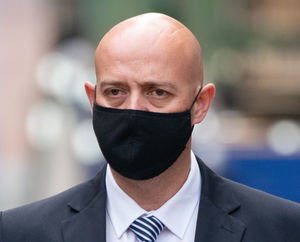
Monk, who the judge accepted had shown genuine remorse, was ordered to serve two-thirds of his eight-year sentence before being entitled to release on licence.
Monk, who denied murder and manslaughter, claimed to have acted in reasonable self-defence while "terrified" of 48-year-old Mr Atkinson, who had a heart condition, was undergoing dialysis treatment, and was smaller and lighter than the officer.
But images of two separate areas of head injury accepted to match Monk's bootlaces were uncovered by forensic examinations using polarised light, proving his account was false.
As well as the marks to both sides of Mr Atkinson's forehead, a pathologist found 15 areas of "under-the-skin" bruising, including marks to his neck, shoulder, shoulder blade, flank, buttock, thigh, bicep, elbow and shin.
It emerged on Monday that Monk had been found guilty of gross misconduct five years before he killed Mr Atkinson, after failing to mention two cautions on his application form to join the West Mercia force in 2001.

The court heard that he kept his job in February 2011 - a year after details of the cautions came to light - despite being found to have breached required standards for honesty and integrity.
Addressing the court on Monday, prosecutor Alexandra Healy QC said: "Mr Monk was cautioned for theft from a shop as an employee - he was employed at the time at Woolworths in 1997.
"There was a further caution in 1999 for being found drunk."
The court was told that the warnings were not recorded on a computer system because of policies at the time for dealing with spent cautions.
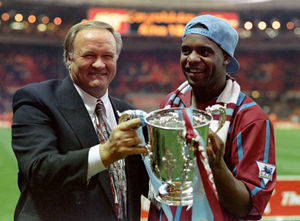
Reacting to the verdict against Monk last week, West Mercia Assistant Chief Constable Rachel Jones said she was "sincerely sorry" and offered her "deep condolences" to Mr Atkinson's family, who had "demonstrated great dignity and strength throughout".
She added that the force had "much to do" to "strengthen those bonds" with the communities it served.

